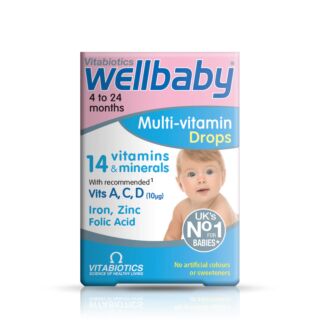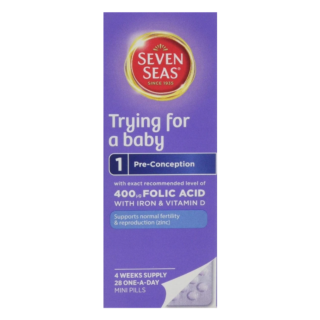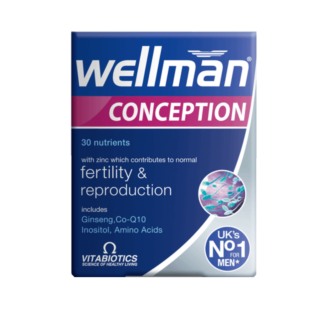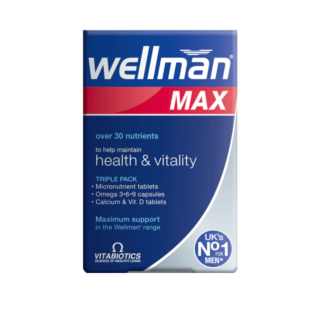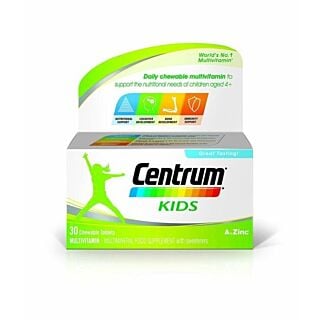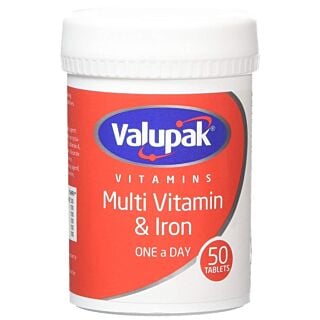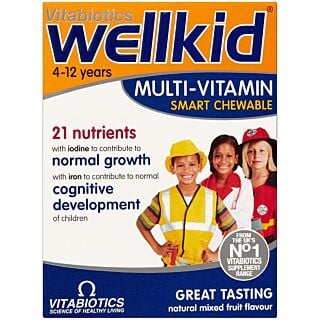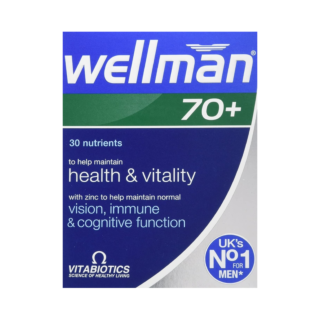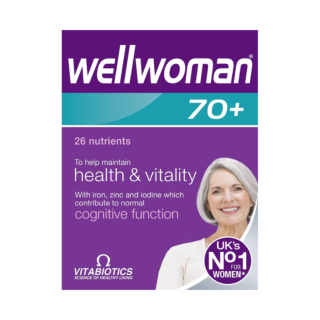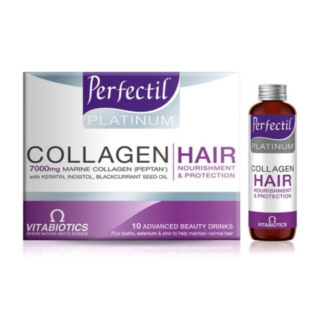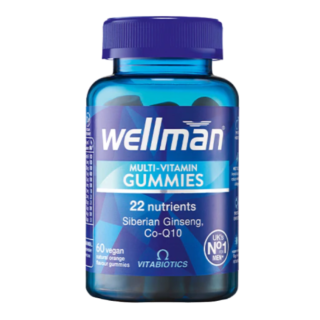Vitamin D & Iron
Deficiencies in iron and vitamin D are common, so why not try a supplement? … Read More See less
Vitamin D is recommended to everyone in the UK during the autumn and winter because of the limited sunlight. Iron deficiencies are common in pregnant and menstruating women, those with a poor diet, and people with intestinal disorders or other chronic conditions. If you think you might benefit from iron and vitamin D, we have a range of supplements containing both of these vital nutrients.
Related Guides

Free delivery when you spend over £30

100% discreet delivery for every item ordered

Fully regulated UK pharmacy
Are Vitamin D and Vitamin D3 the same thing?
To answer this question properly, we need to understand that Vitamin D is a type of vitamin, rather than the vitamin itself.
Vitamin D is used when we talk about Vitamins D3 and D2, which are slightly different from one another.
The main difference between the two is that Vitamin D2 comes from plant sources and Vitamin D3 comes from animal sources (e.g. cod liver oil, egg yolks).
Vitamin D3 is also created in your body when sunlight hits your skin, which is why the NHS advises Brits to take vitamin D supplements during the winter months.
If you buy Vitamin D or a multivitamin with Vitamin D included, the nutritional table on its packaging will let you know whether you’re getting Vitamin D2 or D3, so if you need one, in particular, this is where you’ll find the information you need.
Do vegans need an iron supplement?
If you’ve decided to make the switch to a plant-based diet, you may be lacking the essential nutrients you need, such as iron, which is usually found in red meat products.
You can get sources of iron from your vegan diet if you enforce good preparation and variety - if not, you may benefit from taking an iron supplement to keep your body functioning as it should.
Not all iron supplements are vegan, so make sure to check the label to ensure the product is free from any animal products.
Do over-50s need to take iron supplements?
Iron supplements are vital for people who suffer from iron deficiency anaemia, which is common in people who are vegetarian or vegan, or in people who have suffered blood loss.
The symptoms of iron deficiency anaemia are tiredness, lack of energy, shortness of breath, heart palpitations, and pale skin.
If you are suffering from any of these symptoms, you should inform your GP so they can carry out a blood test to see if your iron levels are low.
You will only need to take iron supplements if your iron levels are low.
Does my child need vitamin D?
All children need vitamin D, starting shortly after birth.
Not only does vitamin D help your child to build strong bones, but it can prevent them from developing bone conditions such as rickets, a condition that softens bones and can occur in growing children.
The age of your child matters when it comes to their vitamin D intake.
Speak to your doctor for advice on how much vitamin D you should be giving your child.
How much vitamin D should I take?
The NHS recommends that everyone over the age of 4 should take 10 microgram vitamin D supplements during autumn and winter.
This is because we usually get vitamin D from sunlight hitting our skin and when the lovely British weather kicks in in the colder months it can be harder for us to catch those rays.
Although you can get vitamin D from your diet, it’s not the easiest vitamin to get enough of, which is why daily supplements step in to help.
If you’re someone who isn’t exposed to a lot of sunlight in general, you can take a vitamin D supplement all year round to help keep your levels up.
In which food is vitamin D found?
There are lots of food that can provide you with vitamin D, including fatty fish like tuna, salmon, and mackerel; dairy products, soy milk, orange juice, and cereals.
However, it is very difficult to get the recommended daily amount of vitamin D through your diet alone.
The NHS recommends people in the UK should take a 10 microgram supplement per day, but don’t exceed 100 micrograms (4,000 IU).
Who is more at risk of vitamin D deficiency?
Whilst we’re all at risk of having low vitamin D levels during the darker months in the UK, some people can be at risk all year round.
You should take a 10 microgram vitamin D supplement all year round if you spend a lot of time indoors (for example, if you’re frail or housebound), if you’re in an institution like a care home, or if you usually wear clothes that cover up most of your skin when you’re outdoors.
This also applies if you have dark skin - for example if you have an African, African-Caribbean or South Asian background - as your skin might not make enough vitamin D from sunlight alone.
What are the symptoms of a vitamin D deficiency?
The trouble with a vitamin D deficiency is that it isn't always easy to spot.
Symptoms of a vitamin D deficiency can be subtle and you may not realise that you are deficient.
Signs of a vitamin D deficiency can include:
- Fatigue or tiredness
- Bone, joint or muscle pain
- Low mood or energy
- Being frequently ill
- Feeling anxious
- Irritability
- Weight gain
- Hair loss
A deficiency in children and babies can be quite dangerous, as it can lead to a disease called rickets.
This is a serious bone problem that can cause complications, such as bowed legs.
Do children need iron supplements?
Your child should be able to get enough iron from eating a balanced diet, with food such as red meats, fish, leafy vegetables and beans.
However, if your child is a picky eater, has a vegetarian or vegan diet, exercises often, or they’re going through menstruation or a rapid growth spurt, you may need to give them an extra boost of iron through a supplement.
Who should take an iron supplement?
Most people are able to get enough iron from diet alone, but some people who might not be getting enough iron may benefit from taking an iron supplement.
If you’re pregnant, have heavy periods, follow a vegetarian or vegan diet or have a blood disorder, you may need to take an iron supplement to ensure you’re getting the correct amount your body needs.
You should, however, check with your GP first so they can test your blood to see if your iron levels are low.
Are iron supplements good for hair loss?
Iron helps to carry oxygen to your red blood cells, which can make it an essential mineral for lots of functions, including hair growth.
Having anaemia, which is often the result of an iron deficiency, is a common cause of hair loss, especially in women.
If your body lacks the correct amount of iron to make enough red blood cells, the oxygen they create will be prioritized by your vital organs rather than your hair follicles.
Without enough oxygen, your hair follicles cease to function properly, and your hair may fall out.

